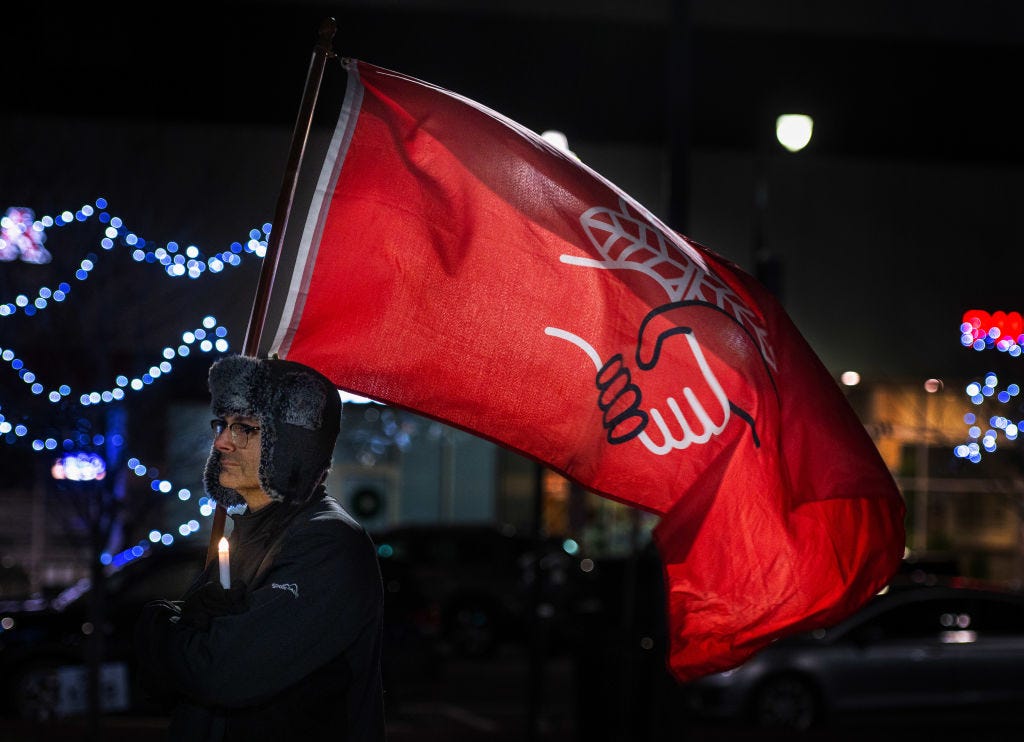DSA Derangement Syndrome
Socialists haven't taken over the Democratic Party
Not since the rise of Bernie Sanders have so many different people been talking about the Democratic Socialists of America. This has entirely to do with their unwavering support for the Palestinian cause. Many DSA members are openly anti-Zionist and criticism of the Israeli government’s actions is central to their policy agenda. Long before they made defunding the police a litmus test, DSA cared about ensuring their candidates supported or at least were friendly to BDS, a nonviolent boycott of Israel that is intended to pressure the government to end the occupation of the West Bank and the blockade of Gaza. Orthodox Jews in New York who were familiar with DSA always disliked them because they condemned Israel. Now, with Hamas’ slaughter of civilians and Israel’s furious retaliatory bombing campaign—and the plausibility of a land invasion of Gaza—far more attention is being paid to what American political actors say about the war in the Middle East.
And DSA, after enduring harsh criticism for initially promoting (though not organizing) a pro-Palestinian rally in the wake of the Hamas attack, has become a hate object for both conservative Republicans and centrist Democrats. A column in the National Review declared that DSA is a “radical left-wing political force has achieved a level of penetration into the Democratic Party … that no radical-right organization even comes close to matching.” Ritchie Torres, the Bronx Democratic congressman, has spent the last few weeks in a near-constant war with DSA online, deriding them as a bunch of “trust-fund babies and hipsters who are “radioactive in New York politics.” Frank Carone, a Democratic lobbyist who recently served as Mayor Eric Adams’ chief of staff, called DSA “a clear and present danger to our way of life, our freedom, our decency and truth.”
The common thread here, beyond sheer hatred of DSA, is power. All of these comments, explicitly or implicitly, argue for the power and influence of DSA. Torres and Carone, unlike the conservative National Review, do not contend that DSA has dominated the Democratic Party more than any “radical-right” organization in the GOP, but their focus on a group that boasts less than 100,000 members nationwide and only eight members (out of 213) in the New York state legislature is striking. If an organization is compelling a member of Congress to repeatedly post online about them and a former mayoral chief of staff to write that they are posing an existential threat to New Yorkers (and perhaps all Americans), they’re not merely living rent free in these imaginations. They’ve got the deed to the whole castle.
Why is it this way?



